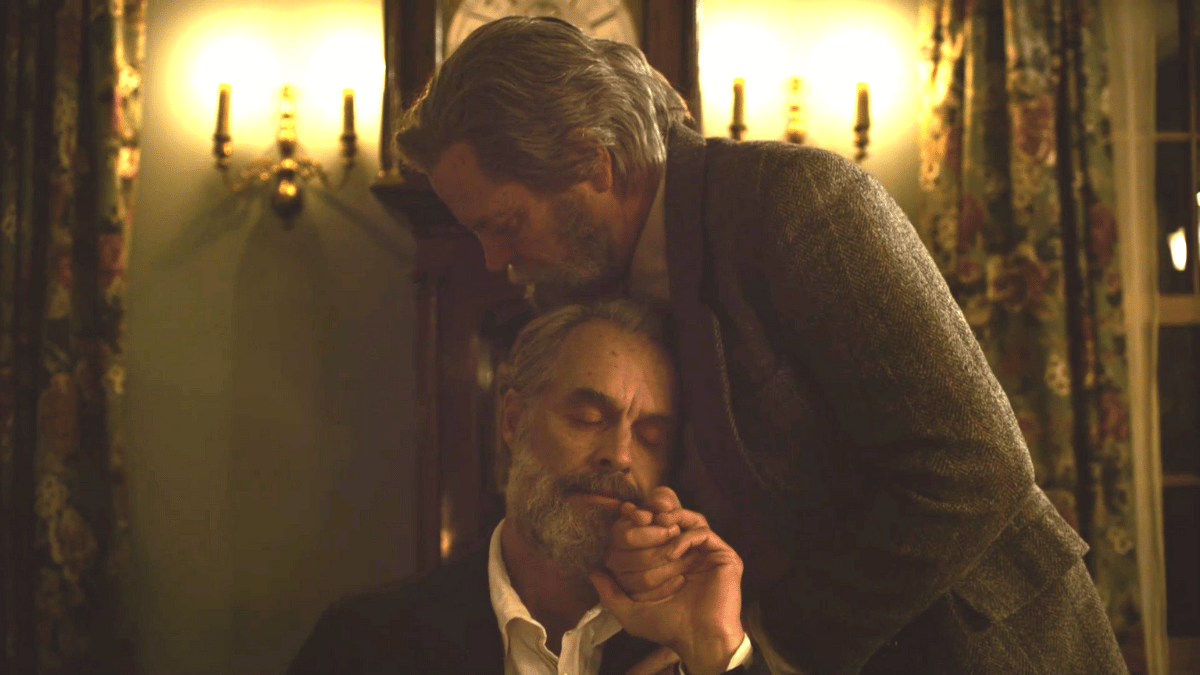Spoiler and Content Advisory: the following article contains discussion surrounding topics of death by suicide, euthanasia, violent crime against people with disabilities, and spoilers for The Last of Us episode three, “Long Long Time.”
If there is one thing anyone online has heard about the live-action adaptation of The Last Of Us is that it’s an absolute tearjerker. Knowing the content of the source material, it’s hard to have expected anything less. The recent story of its third episode, “Long Long Time,” made some serious changes to the game’s lore that many have considered a gamble that paid off. However, one difference may have left disabled viewers feeling far more dread than the show’s writers ever intended, due to the real-life consequences of its narrative.
Without giving a full recap of the episode, one of its primary elements is the romance between Bill (Nick Offerman) and Frank (Murray Bartlett). Fans and critics alike have praised this episode as fantastic representation, and a rare moment on television showing a loving queer couple growing old together. It’s the episode’s final and biggest twist that has been going particularly viral — as shown in the Tweet shown below — that concerns begin to rise.
There is a name often associated with the trope of a caregiver aiding a disabled person to end their lives by suicide — Bury Your Disabled. This trope often romanticizes the idea that to help a person with disabilities end their life is a beautiful moment, the apex of a passionate desire never to leave the side of the loved one, culminated by providing that very person with a merciful death. As Frank, the person with an obviously-disabling condition says in the episode, “Then love me the way I want you to.”
Debate is fierce, even within the disabled community, as to the ethics of euthanasia in general, but putting that entirely aside for a moment, this sort of storyline results in real-life consequences for disabled people that cannot be ignored. Ableist narratives are fed to people from an early age that disabled lives are less worth living, and that people with disabilities are objects worthy of pity — something disabled people would absolutely disagree with. Even more gut-wrenchingly, they lead to people murdering disabled loved ones, and pity from the public towards those who perpetuate that violence.
Studies show that in the United States, at least one disabled person a week is murdered by a caregiver. Unfortunately, perpetrators are rarely adequately sentenced. “The media portrays these murders as justifiable and inevitable due to the ‘burden’ of having a disabled person in the family,” says the Autistic Self Advocacy Network in their ASAN’s anti-filicide toolkit. “If the parent stands trial, they are given sympathy and comparatively lighter sentences, if they are sentenced at all.” Narratives such as the one presented in this episode of The Last Of Us seep into the public consciousness — and conscience — and is part of why that happens.
It may seem easy to consider “Long Long Time” as coming from a different context than that of real-life people with disabilities; after all, Bill and Frank are living through a literal apocalypse, one in which any medical resources, let alone proper care, would be extremely limited. Unfortunately, the framing device of the cordyceps pandemic makes the episode’s particular storytelling that much worse, due to the outcomes facing disabled people in the ongoing COVID-19 pandemic.
Caregiver-related murders took place during COVID-related lockdowns, when resources were not as easily available. Many disabled people still struggle to receive basic medical care, with many hospitals still being overwhelmed, and wait times, especially in emergency rooms, being longer than ever. Then there are continued medication shortages many still face due to supply chain issues, and an inability to safely go to pharmacies, due to a lack of mask-wearing that can threaten lives. It has also become harder than ever for those to get in-home care, with not only fewer employed people able to provide it, but a lack of required masking as well. Even now, immunocompromised people lack any of the protections they had before, with the prophylactic medication Evusheld no longer being authorized in the United States due to its inefficacy in fighting the majority of now-common COVID-19 variants.
Current circumstances, compounded by this episode of The Last of Us, have some viewers in the disability community wondering if the culture at large isn’t asking a larger, more harmful question: If disabled people lack access to care or resources they need, should they just die? Unfortunately, there is a real-life parallel showing that at least to some, the answer seems, disgustingly, to be yes. The Medical Assistance In Dying program in Canada, known as MAID, is regarded as a major victory for those who have fought for “death with dignity” legislation. The program has been criticized for preying on disabled people who lack any other programs to support them, seemingly leaving them with no other option than to choose the assisted suicide offered by MAID. Many stories have been publicized about this, yet changes to the program have not been made.
This is why the narrative presented in The Last Of Us is downright dangerously offensive. The idea that it is a noble sacrifice of love to kill a disabled person, to take them out of their misery, should not be normalized like this. Hollywood should have learned their lesson when Me Before You was massively protested and faced a plethora of complaints from the disabled community over similar concerns. It seems the film and television industry still has a long way to go in its portrayals of disability.

